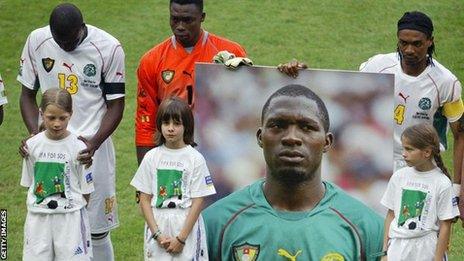Student's heart research finding 'could be lifesaving'
- Published
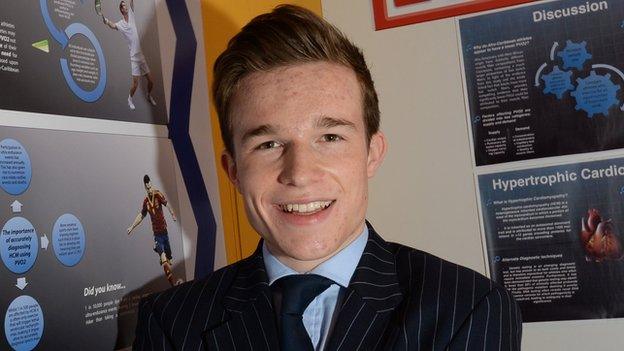
An 18-year-old student has made a scientific breakthrough that could help save the lives of black athletes with undiagnosed heart problems.
Hypertrophic cardiomyopathy can lead to the heart suddenly stopping.
Henry Roth, from Hampshire, proved different tests for the condition were needed for black and white athletes - which do not currently take place.
A cardiologist who worked with Henry on the project said he was "astonished" by the teenager's findings.
Henry was inspired to investigate the condition after the death of his uncle at the age of 21.
A research project emerged from a conversation with a cardiologist at St George's Hospital in London during tests on Henry's own heart.
They discussed how black athletes were at higher risk and the aspiring doctor resolved to find a better way of testing.
Thicker heart
Hypertrophic cardiomyopathy is an inherited disease where the heart muscle becomes thickened, increasing the risk of the heart suddenly stopping.
Screening does take place, but intense exercise can also lead to a thicker heart - so some athletes might not be aware they have the condition.
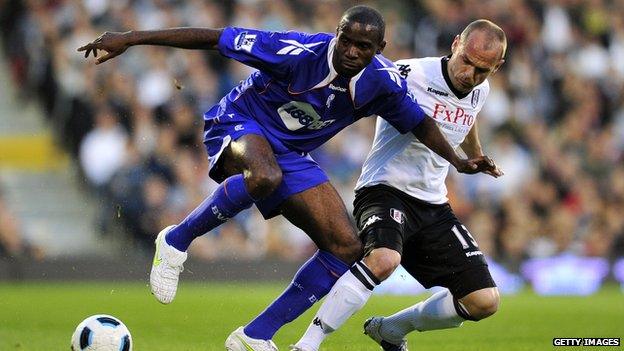
Fabrice Muamba in his playing days
Bolton footballer Fabrice Muamba collapsed on the pitch in 2012 when his heart stopped, despite being described as one of the fittest players at the club.
Marc-Vivien Foe, the Cameroon footballer, died during an international match in 2003.
An alternative way of testing involves looking at the maximum amount of oxygen the body can use up at the limits of physical exercise. Those with hypertrophic cardiomyopathy cannot reach the same peak.
Henry's study on elite athletes found differences between black and white athletes, but these were not accounted for during screening.
It meant black athletes were less likely to be diagnosed.
Henry, who studied at Guildford's Royal Grammar School, said he could not believe the difference had not been identified already.
He told the BBC: "I was quite frankly shocked, but it takes people who are shocked to do something about it, make something happen and not sit back and accept normal practice."
Huge potential
Prof Sanjay Sharma, the medical director of the London Marathon and the charity Cardiac Risk in the Young, said: "Henry has a thirst for researching the heart, driven by his own family's experience of sudden cardiac death.
"He wants to make sure other families don't go through what he has experienced, and I have been really excited, and quite astonished, by the research he undertook with me and my colleagues at St George's Hospital.
"Henry's work has the potential to change the way we test athletes for hypertrophic cardiomyopathy."
Around one in 500 people in the UK has the condition, although it will not affect the lives of the majority of patients.
Henry explains: "An aeroplane on the ground with a mechanical fault is not dangerous, but as soon as you take it into the air it's dangerous.
"As soon as they go on to the field it leads to the possibility of arrhythmias (irregular heartbeat)."
Henry was also a finalist in the National Science and Engineering Competition, external.
He will be returning to St George's to continue the research before travelling during a gap year and then pursuing a career in medicine.
- Published19 March 2012
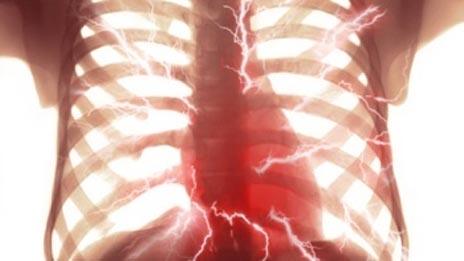
- Attribution
- Published17 March 2012
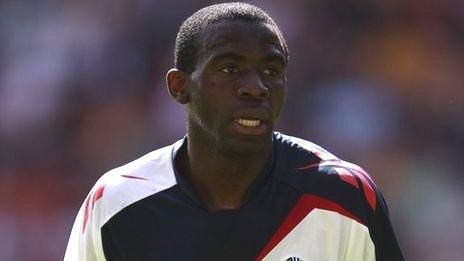
- Attribution
- Published26 June 2013
